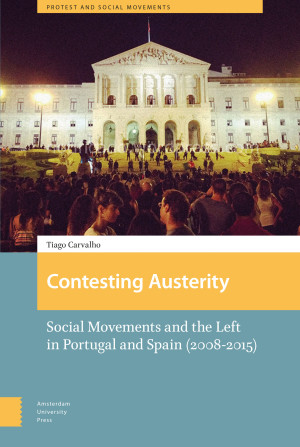"Contesting Austerity is a landmark work. Its innovative perspective highlights how the distinct political cultures of Spain and Portugal shaped reactions to the crisis. A must-read for all interested in Iberian politics and society."
. Pedro Ramos Pinto, Associate Professor in International Economic History, University of Cambridge
"Contesting Austerity brings new insights into how movements and parties interacted in Spain and Portugal during the ‘age of austerity’. Anyone interested in understanding the effect of protest in these cases, and more generally in the post-2008 period, can do no better than to turn to this outstanding book."
. David. J. Bailey, Senior Lecturer, Department of Political Science and International Studies, University of Birmingham
"This book investigates the Spanish and Portuguese protest cycle in times of austerity. It brings back into social movement studies a debate on capitalism filling a gap in existing literature. With a dynamic view of a complex process in unsettled times, it contributes to the understanding of how the financial crisis and ensuing crisis of legitimacy opened spaces for contentious actors."
. Donatella della Porta, Director of Centre on Social Movements Studies, Scuola Normale Superiore


